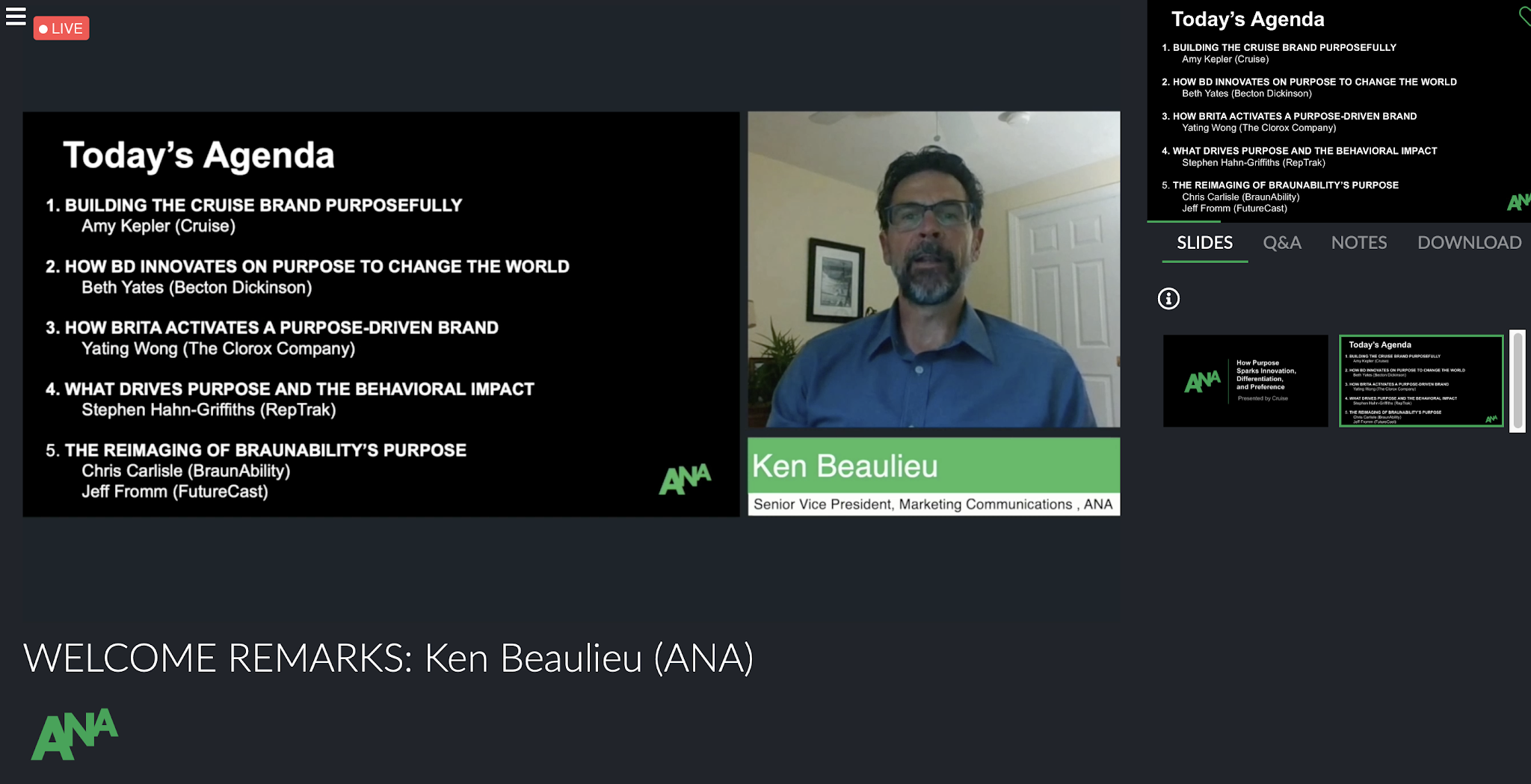NYC Media Lab Summit ‘20 | Lisandra de la Paz
Technology has grown exponentially in the last decade. During that time, NYC Media Lab has driven innovation in media and technology by cultivating collaboration between universities and companies based in New York City. Thanks to this advance in the industry, the COVID-19 pandemic could not impede the organization’s annual summit, which took place online.
It is bold for an organization that has taken the development of technology and media as a banner, to break the ice of the event with a keynote presentation featured by Tristan Harris, social media critic behind the creation of the top 10 Netflix film The Social Dilemma.
The conversation with Harris, also President and Co-Founder of the Center of Humane Technology and former Google design ethicist, then was followed by a panel of tech and media sector experts, who offered “Three Big Ideas to Fix the Internet.”
Moderators Steven Rosenbaum and Erica Matsumoto, Managing Director and Director of Partnerships of NYC Media Lab, respectively, went straight to the point and started approaching Harris about The Social Dilemma, which reached 190 countries and has been translated in 30 languages.
The film brings testimonies from ex-employees of Google, Facebook, Instagram, Twitter, and more. It takes a deep dive into social media's impact on mental health, politics, the economy, and society.
After the documentary launch, Facebook released a response that some people tagged as a “ridiculous defense,” Harris said.
“It is not very defensible, the idea that we are not the product we are somehow the customer, and there is just advertising accompanying our use of the product, is definitely not true.”
Harris pointed out an example of persuasive design to support his comment: If you want to delete your Facebook account, a window is going to pop up, asking you ‘Are you sure you want to delete your account?’, and showing you five photos of your friends, with the purpose to persuade you that you would lose access to those five people.
“That is like a digital drug lord that says ‘Before you leave, let me just entice you with a little bit more,’”
he said.
This idea is one of the most developed in The Social Dilemma, that exposes where we have been trapped and tries to make people aware of what social media is doing and why, and how the whole system works.
The business model of the social media universe is taking over the democracy of the people. That is the reason why the world needs a
“cultural awakening, a cultural movement, that knows we are living inside of inhumane technology platforms,”
Harris stated.
Despite social media’s negative effects, like the spread of misinformation, cyberbullying, and data collection, these platforms have done incredible things, from reuniting families and friends to support and help good causes. The film intends not to encourage people to delete their social media accounts, but make society more aware of what is going on.
After finishing the conversation with Tristan Harris, Rosenbaum triggered a panel composed by Sara Fischer, reporter and moderator of the discussion, journalism professor Jay Rosen, and authors Cory Doctorow and Nina Jankowicz.
Each of the speakers was asked to suggest one “Big Idea to Fix the Internet.”
Big Idea One
Science fiction author, activist, and journalist Cory Doctorow proposed to start enforcing antitrust law. Big tech companies have grown by buying or crushing their competition, using anti-competitive tactics, and “they have new interpretation laws and new regulations to make it illegal to do what they did to their previous customer,” according to Doctorow.
To avoid this “network-effect lock-in,” we need to “weaken the power of the big companies, not just in tech but in every industry, so they have a harder time distorting our policy,”
Doctorow said.
Big Idea Two
Nina Jankowicz, who is specialized in disinformation at the Woodrow Wilson International Center for Scholars, and is the author of How To Lose the Information War: Russia, Fake News, and the Future of Conflict, stated that is crucial to start treating foreign and domestic disinformation in the same way.
“If we have governments that claim to fight disinformation originating outside of our borders, we cannot fight them and effectively do so when we are our own players of disinformation,”
Jankowicz said.
To disincentive the most enraged content, that is usually the most engaging, some changes could help, like regulatory oversight and transparency, and teaching people how the media ecosystem works.
Big Idea Three
NYU journalism professor Jay Rosen said that new companies favor dailiness, but newsroom routines have not adapted well to the internet’s rule of information abundance. They promote what new today is, not what is true today. So Rosen’s big idea is to shift in the way newsrooms cover information, by creating an Urgency Index, which highlights the most important news and recent developments surrounding them.
“There is currently no way to interrupt daily content production and switch to an emergency setting in the news,”
Rosen stated.
To get rid of this “dailiness” bias in the newsroom, Rosen proposed to create “products that respond to information overload and news fatigue, and cynicism generated by those overloads.”
LinkedIn links
Tristan Harris https://www.linkedin.com/in/tristanharris/
Steven Rosenbaum https://www.linkedin.com/in/steven-rosenbaum/
Erica Matsumoto https://www.linkedin.com/in/ericamatsumoto/
Sara Fischer https://www.linkedin.com/in/sara-fischer-23380121/
Jay Rosen https://www.linkedin.com/in/jay-rosen-502a03106/
Nina Jankowicz https://www.linkedin.com/in/ninajankowicz/
Cory Doctorow https://twitter.com/doctorow





